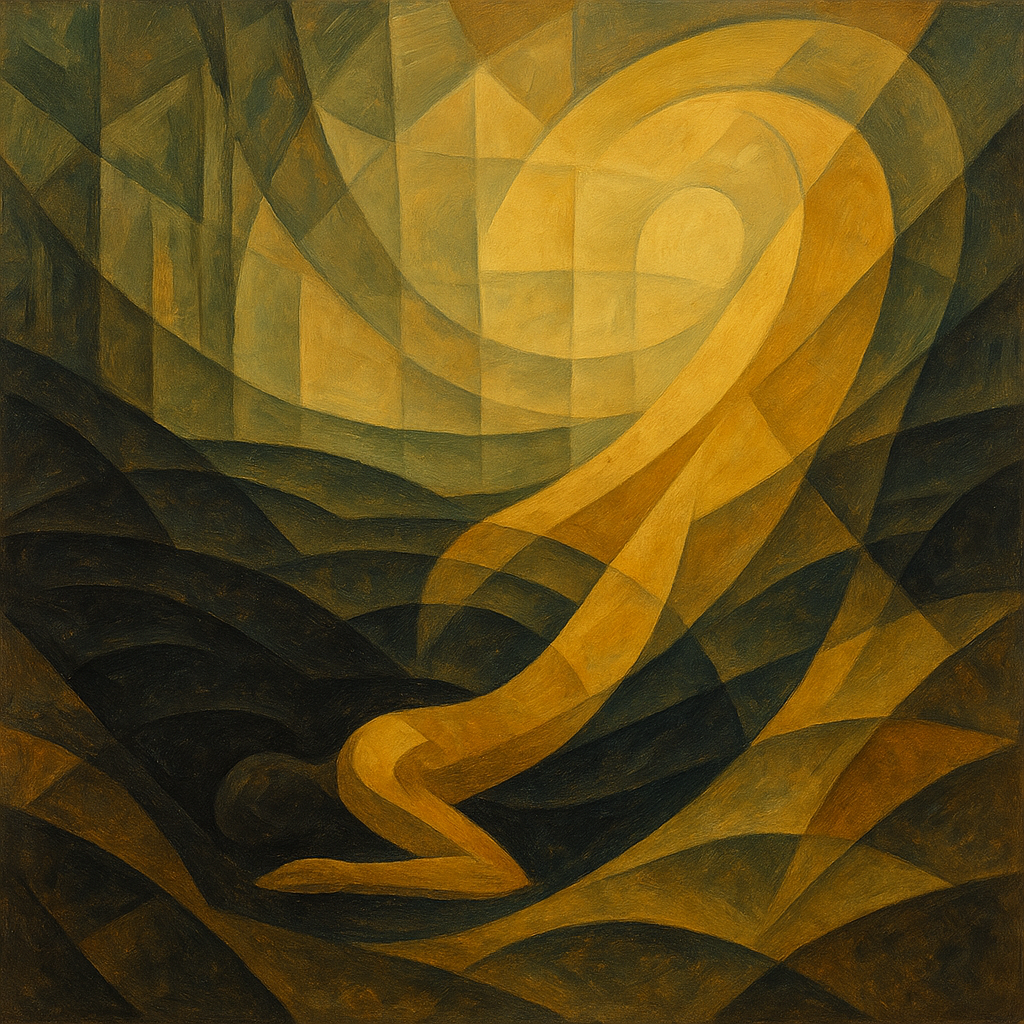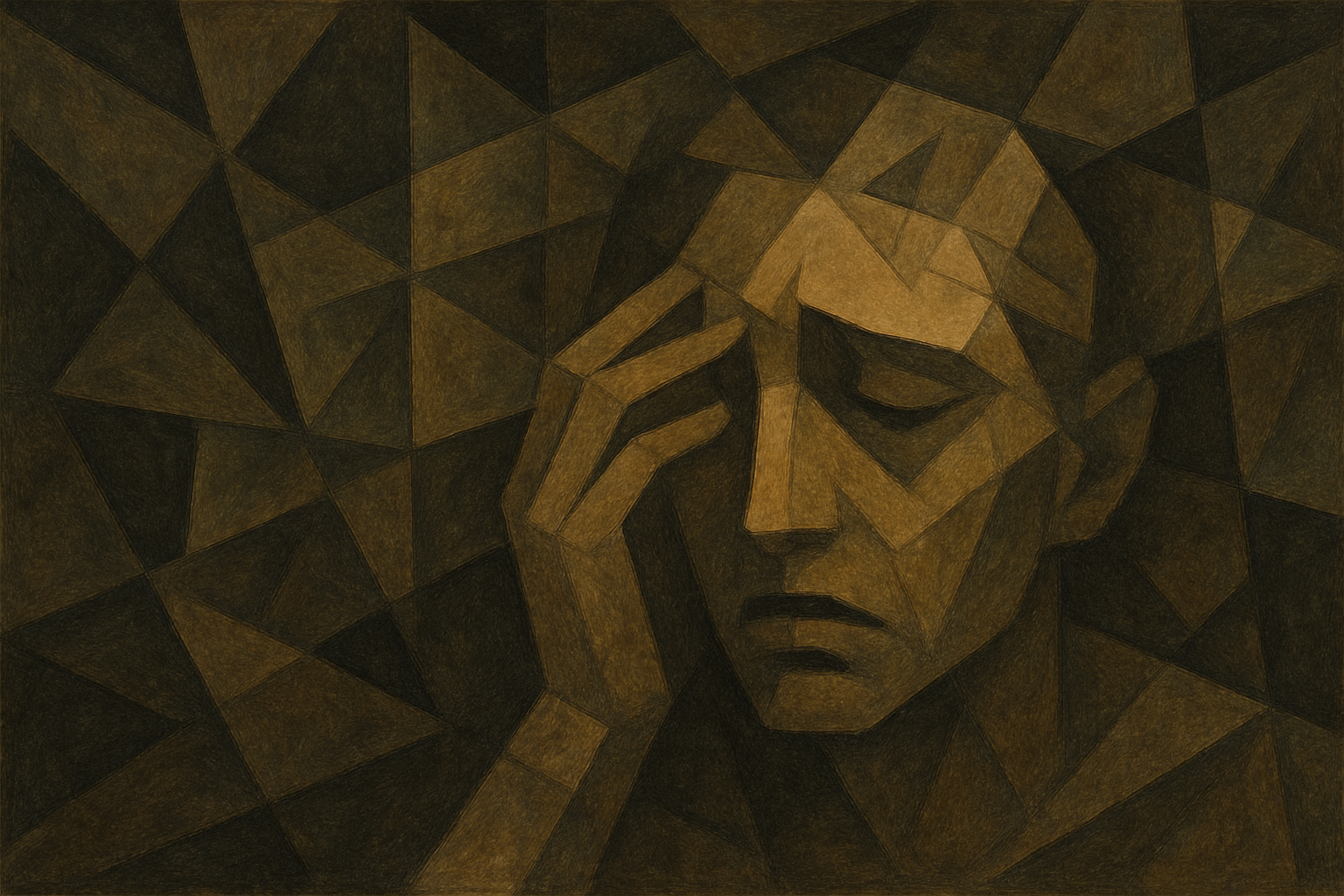This article first appeared on my Substack. You can subscribe here for weekly reflections.
What is a Psychedelic Casualty?
When the first psychedelic casualty walks into your practice, you might think they are an anomaly—a rare, one-off occurrence. Unfortunately, the problem of psychedelic casualties is both significant and largely invisible.
What we need is a shared language to describe these experiences clearly and compassionately—a way to talk about challenging trips, bad trips, and psychedelic casualties that doesn't pathologise unnecessarily, but also doesn't turn away from harm. That's what this piece offers: a practical framework, grounded in real-world experience.
I often think of it like riding a motorbike. Psychedelics can take us on an exhilarating or inspiring trip—but every now and then, someone comes to harm. We don't need to centre every conversation around risk. But we do need a system that knows how to respond when something goes wrong.
My hope is that after reading this, you'll have the language you need to think more clearly about these experiences and contribute to a more nuanced discourse around psychedelic harms.
Definitions
It can help to think of different types of trips as a series of nested circles. Within the set of all possible psychedelic trips lies the subset of challenging trips. Within challenging trips, we find bad trips, and within bad trips, a smaller subset: psychedelic casualties. Finally, within psychedelic casualties, there is an even smaller group—those who seek help.
Looking at it this way, we can see that not all psychedelic trips are challenging trips, not all challenging trips are bad trips, not all bad trips lead to psychedelic casualties, and not all psychedelic casualties will seek help. Let’s start at the outside and move in.
Challenging Trips
Challenging trips are psychedelic experiences that contain moments of discomfort, struggle, or intense emotion but ultimately lead to resolution, relief, or transformation. The content of these trips often arises unpredictably, sometimes reflecting deeply buried fears or emotions. While difficult in the moment, these experiences typically resolve within the trip itself, offering insights or emotional breakthroughs that can feel healing and meaningful.
The phrase “challenging trips” allows for the fact that not all difficulties are harmful; they are often an essential part of the psychedelic journey and can pave the way for growth and healing.
Real-World Examples of a Challenging Trip: Sophia’s Descent into the Deep
At a three-day music festival with friends, Sophia wandered into the surrounding forest and took two tabs of LSD. As the initial visuals faded, she felt herself sinking into the earth, the gritty texture of the dirt seeming to grab at her skin. She tried to stand and shake off the sensation but the intense swirling overwhelmed her, forcing her back to the ground, face down. She began to panic as the ground beneath her became a thick, black, syrupy ocean, intent on swallowing her entirely.
Drawing on her experience as a trip sitter at festivals, Sophia had a moment of clarity. She recognized what was happening and made an effort to surrender to the experience. Lying back, she allowed herself to “let go” and sink fully into the blackness. As she fell faster and deeper, the tension began to ease, and the darkness shifted. The black water became something more warm and luminous, and she felt herself floating, then soaring. Finally, she felt herself dissolve, arriving at what she could only describe as “a deep sense of unity with the universe”, and held by “an infinite, loving presence.”
Reflecting on the experience later, Sophia described it as one of the most terrifying moments of her life - but also one of the most profound and beautiful, leaving her with a renewed sense of connection and awe.
___
While this trip has elements of challenge or difficulty, it also has periods of positivity, relief and resolution. As such, we wouldn't call it a bad trip. I call this type of trip a challenging trips. In general, we need to wait until the trip is over to properly evaluate what sort of trip it was. Often it is the resolution of what temporarily feels like a bad trip - or a period of great difficulty - that is key to the experience of healing or insight. It sometimes seems as though you can’t have the good without the bad.
If challenging trips are trips with periods of difficulty, but ultimately have some sense of resolution or relief, what is a bad trip?
Bad Trips
A bad trip is a psychedelic experience that is overwhelmingly distressing, frightening, or disorienting, with little to no resolution. Unlike challenging trips, where difficult content may give way to relief, insight or healing, bad trips are marked by unresolved fear, confusion, or emotional turmoil that persists beyond the experience itself. These trips often leave individuals feeling worse than before, sometimes with lingering symptoms such as anxiety, paranoia, or dissociation. While not every bad trip leads to longer-term harm, these experiences can be deeply unsettling and may require significant effort and support to process and integrate.
Real-World Example of a Bad Trip: Zara’s Toad Discombobulation
Zara, an experienced "psychonaut" who had tried most psychedelics, finally sought out 5-MeO-DMT, the "Toad", reputed to be the most intense of all. Inhaling the vapor with a trusted guide, she fell back on the mattress and plunged into a dark void. Pure terror gripped her as she became jagged shards of light and sound. She felt herself disintegrate - her essence exploding across an infinite expanse, simultaneously ceasing to exist and becoming the universe. Fleeting thoughts pierced her awareness: Have I died? Is this forever?
When the effects began to subside, Zara opened her eyes to the physical world, but it no longer felt like home. Her body felt foreign, and her surroundings unreal. She described it later as though she had returned to her life but left pieces of herself behind. In the days that followed, she withdrew from daily life. A deep, gnawing fear took root - that she had fundamentally untethered herself and might never return.
A couple of weeks following the trip, Zara reached out her aunt - someone with whom she felt supremely safe. Her aunt was a midwife and nurse with years of experience supporting women through postpartum psychosis and depression. Over a series of long visits and phone conversations, she helped Zara begin to find her way back to a sense of solidity.
Following the experience, Zara approached psychedelics with a newfound humility, no longer taking them lightly, or recommending them to anyone and everyone. She lived with a heightened sensitivity to both her inner and outer worlds. Over time, she came to view the trip as an ordeal she had survived, but also as a personal turning point that deepened her bond with a beloved aunt.
---
In the example above, we can see how in a bad trip, the difficult experiences persist throughout the trip, unresolved. Instead of offering relief, insight, or transformation, these trips leave participants feeling burdened, frightened, or destabilized in the immediate aftermath.
Not all bad trips, however, lead to long-term harm. For some, the intensity of the experience naturally fades with time. The mind and body have an inherent capacity to recalibrate, and many people find that the unsettling emotions or thoughts gradually resolve on their own in the days or weeks that follow. Others may find relief through connection - with a friend who listens without judgment, or a community familiar with the terrain of psychedelic journeys. With or without external support, a significant number of people are able to process their bad trip and move forward, perhaps even drawing some meaning from the experience over time.
Yet, there are those for whom the aftermath remains unresolved. As we shall see, some people feel too overwhelmed, ashamed, or disoriented to seek help. Others may lack access to the right kind of support, or they may not even recognize that they need it. For these individuals, the negative impact of the trip continues, impacting their lives with persistent symptoms accompanied by fear, confusion, or emotional distress. This is where we cross into the territory of psychedelic casualties.
Psychedelic Casualties
It is not necessary to pinpoint the exact point at which we describe a bad trip as having resulted in a “psychedelic casualty”. Suffice to say that a psychedelic casualty is someone who experiences harm as a result of a psychedelic trip, and has not yet found their way back to health and wholeness. This harm can range from mild to severe. On the milder end it may involve difficulty concentrating, challenges in meeting responsibilities, or tension in relationships. At its most severe, it can manifest as what might be called “psychedelic trauma,” resembling PTSD with symptoms such as flashbacks, debilitating anxiety, insomnia, and profound disruption to daily life.
Not all of these individuals will seek help. When a psychedelic casualty does reach out, they are usually saying something along the lines of, “I took a psychedelic, had a challenging trip, and now I’m struggling. Please help me.” The symptoms they describe can include hearing voices, feeling fragmented, severe anxiety related to death or insanity, dissociation, and more. I will not list examples of psychedelic casualties here as we will dedicate the entirety of a future article to this, looking at the most common themes and symptoms reported by psychedelic casualties.
As an aside, it's worth noting that not all psychedelic casualties result from bad trips. Some "good" trips can also lead to harm. These are positive experiences with negative outcomes—a distinct category of psychedelic casualty that sits outside the concentric model I've described. They're not the focus here.
___
So how do I make sense of these scenarios?
A trip is the non-ordinary state experience that follows the ingestion of a psychedelic. Trips can range from beautiful and transformative to distressing and challenging.
A challenging trip is a psychedelic experience that contains moments of struggle or difficulty but ultimately leads to some resolution, relief, or insight. These trips remind us that even the hardest moments can contribute to healing and growth.
A bad trip is one that is primarily distressing, frightening, or disorienting and remains unresolved. While bad trips do not always lead to lasting harm, they can be deeply unsettling and may require support to process.
A psychedelic casualty is someone who has experienced lasting harm as a result of their psychedelic trip. This harm can range from mild disruptions to severe psychological difficulties that require professional intervention.
___
Honest Language
Psychedelic casualties can recover—and crucially, our understanding of any given trip often evolves with time and support. What feels irreparably damaging in week one might reveal unexpected meaning by month six. These distinctions I've outlined aren't rigid categories but a framework for thinking clearly about experiences that exist on a spectrum, shaped by personal context, available support, and our capacity to metabolize what emerges.
There's an essential tension here: as practitioners and researchers, we need honest language about psychedelic harm. Some experiences do cause lasting distress—even contributing to suicide or serious functional decline. To deny these qualify as "bad trips" abandons both intellectual honesty and the people living with the consequences.
Yet when I sit with someone in the raw aftermath of a difficult experience, my clinical vocabulary takes a back seat to human connection. My role isn't to confirm their worst fears or debate terminology, but to hold space for their pain while nurturing the seeds of recovery. They need to know they're not broken, that others have walked this path and found their way through. In that room, in that moment, the question isn't whether their trip was "bad"—it's how we can help them reclaim their life.
My hope is that this framework helps—whether you're sitting with someone in distress, or simply trying to make sense of these complex experiences with greater clarity and care.
—-
If you are interested in working with bad trips, please check out our Bad Trip Integration training can community here: https://www.wild-mind.com/bad-trip-integration






